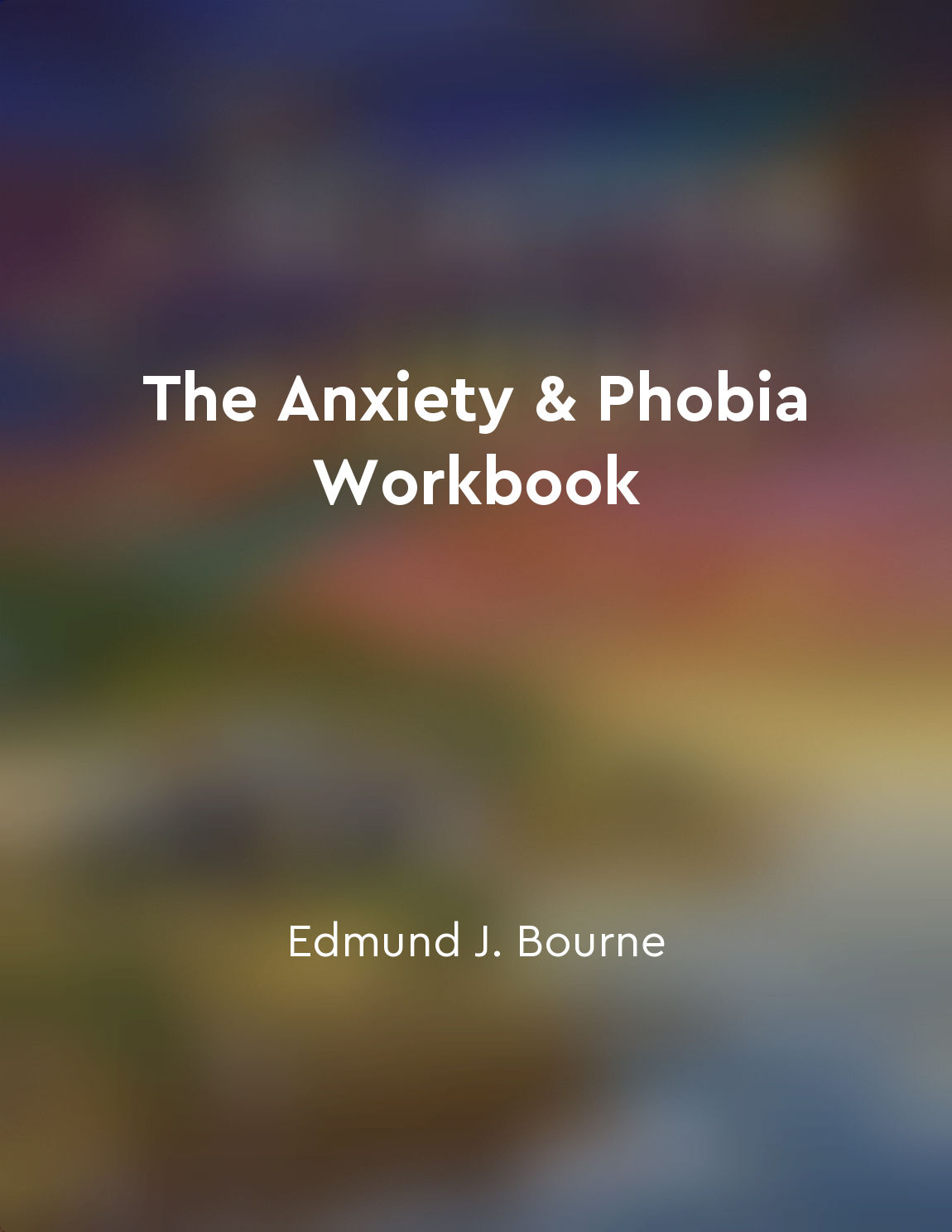Audio available in app
Cognitive therapy promotes resilience in the face of anxiety challenges from "summary" of Cognitive Therapy of Anxiety Disorders by David A. Clark,Aaron T. Beck
Cognitive therapy offers individuals struggling with anxiety the tools needed to build resilience in the face of challenges. By identifying and challenging negative thought patterns, individuals learn to reframe their beliefs and develop a more adaptive way of thinking. This process enables them to better cope with anxiety-provoking situations and reduce the impact of fear and worry on their daily lives. Through cognitive therapy, individuals are encouraged to examine the evidence supporting their anxious thoughts and beliefs. By scrutinizing the validity of these thoughts, individuals can begin to see that their fears are often based on misconceptions or irrational assumptions. This realization empowers individuals to challenge and replace these distorted beliefs with more accurate and balanced perspectives. Moreover, cognitive therapy equips individuals with practical coping strategies to manage anxiety symptoms effectively. By learning relaxation techniques, problem-solving skills, and stress management strategies, individuals are better equipped to confront anxiety-provoking situations with confidence and composure. These skills not only reduce the intensity of anxiety symptoms but also prevent anxiety from escalating into a full-blown panic attack. Another key aspect of cognitive therapy is helping individuals develop a sense of self-efficacy and control over their anxiety. By setting achievable goals and gradually exposing themselves to feared situations, individuals can build their confidence and resilience over time. This gradual exposure to anxiety triggers allows individuals to confront their fears in a controlled and safe environment, eventually desensitizing them to the anxiety-provoking stimuli.- Cognitive therapy promotes resilience by empowering individuals to challenge negative thought patterns, develop effective coping strategies, and gradually confront their fears. By cultivating a more adaptive way of thinking and building confidence in their ability to manage anxiety, individuals can enhance their resilience in the face of anxiety challenges. This transformative process not only reduces the impact of anxiety on individuals' lives but also equips them with the skills needed to navigate future challenges with resilience and strength.
Similar Posts
Deep breathing can relax the brain and body
Inhale slowly and deeply, hold your breath for a moment, and then exhale slowly. Deep breathing can relax the brain and body. W...

Smash negative scripts with the Let's Define Terms Technique
Negative thoughts can have a powerful grip on your mind, causing you distress and unhappiness. These negative thoughts often st...

Patience and persistence are key in overcoming anxiety and phobias
To overcome anxiety and phobias, it is essential to cultivate patience and persistence. It is important to understand that thes...
Uncertainty tolerance is a focus in anxiety therapy
The concept of uncertainty tolerance plays a crucial role in the treatment of anxiety disorders. Anxiety disorders are often ch...

